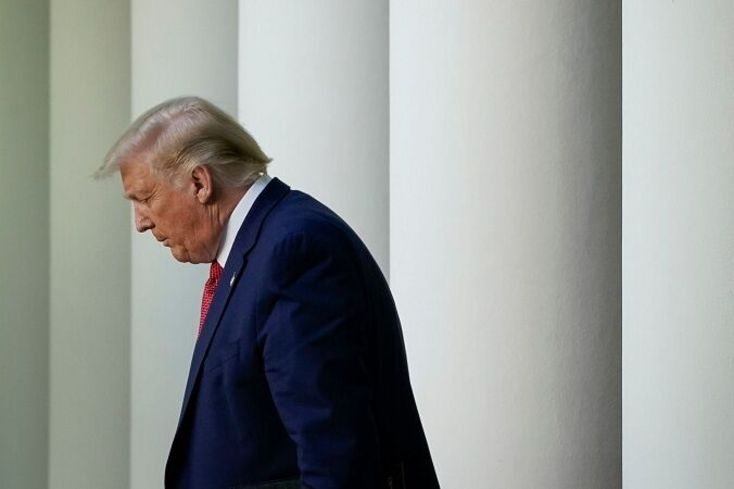In an interview with the website of the Strategic Council on Foreign Relations, Kourosh Ahmadi said: “Undoubtedly, lack of support from 13 out of the 15 member of the Security Council for the US draft resolution to extend the arms sanctions against Iran was one of the most obvious signs of the Trump administration’s political isolation in the international community and showed the disparity of the vast majority of countries, even America’s traditional allies, with Washington at this time.
He said the vote made it clear that, with the exception of a few in the Middle East, no country would support the Trump-Pompeo team’s extremist policies on the Joint Comprehensive Plan of Action and Iran, adding that despite the situation that the JCPOA is struggling with, the agreement has a solid foundation and still has its own popularity in the international community and can survive under different conditions.
US Resolution Bid Was a Tactical Move
The international affairs analyst said that the US action in presenting this draft resolution to extend the arms embargo against Iran could be considered a tactical move aimed at opening the way to resort to the “trigger mechanism”. However, it must be borne in mind that the United States is taking a big risk in this way, and it is not clear what will be the outcome of its action to reinstate previous UN resolutions against Iran.
Referring to the statements of British officials after UK’s vote of abstention to the US resolution against Iran, Ahmadi in analyzing the action of European countries in not cooperating with the US added: “The main focus of the policy of the three European countries and most other EU members in this regard is to maintain the JCPOA. Given Europe’s proximity to the Middle East, they want to avoid as much as possible another military and crisis confrontation in the region, and they believe that maintaining the JCPOA can be one of the most important foundations for maintaining stability in the region.”
Europe’s Efforts to Maintain JCPOA
He continued: “They are aware that the extension of arms sanctions against Iran as stipulated in the failed US draft could also kill Iran’s last motives to stay in the JCPOA. Because the extension of arms embargoes could be a prelude to the extension of sanctions on missiles and nuclear items in the next three to five years. As a result, they try to prevent Iran from losing all its incentives by maintaining some of JCPOA’s economic advantages for Tehran at least in this sphere,”
“All of these actions and assessments by European leaders have been in the context of almost four years of conflict between traditional European democracies and the populist Trump administration, and undoubtedly this platform has been very effective in the formation of this distinction.
Europe’s Emphasis on Coalition Building & Multilateralism
He stressed: “In this regard, the belief of European governments, unlike the Trump administration, in coalition building and multilateralism is also important. For the past four years, however, the Trump administration has taken a completely one-sided approach to international affairs, and unlike the Obama administration, it has not believed in the need to work with allies and build coalitions. All these factors have been effective in shaping the current situation.
Regarding the US officials’ statement that they were trying to activate the trigger mechanism after Washington’s defeat at the UN Security Council, Ahmadi said: “The most important argument for rejecting possible US action by referring to Paragraphs 11 and 12 of Resolution 2231 or the ‘trigger mechanism’ is what that has been said over and over again: That is to say: “Considering that the United States has formally and explicitly withdrawn from the Joint Comprehensive Plan of Action it cannot take action to activate this mechanism.
US in Pursuit of Activating Trigger Mechanism
He continued: “Unfortunately, the problem is that the same permanent members of the Security Council in 2015 agreed with the wording of these two clauses of the resolution, and the two clauses are such that they are deprived of voting and using the veto in relation to revoking previous resolutions. These clauses stipulate that if a member claims that another member has not complied with the JCPOA, a process will be initiated and will automatically lead to the reinstatement of previous resolutions within 30 days without the need for action or a meeting.
According to Ahmadi the only obstacle that needs to be addressed is that the United States can no longer take action because it is not a member of the JCPOA anymore. Other members of the Council may, in accordance with Paragraph 2 of Article 27 of the Charter, submit a procedural resolution in which it is not possible to use the veto right, but the United States may not accept the procedural aspect of such a resolution and may insist on the veto right.
The international affairs expert explained: “Voting on whether this resolution is procedural or not may face the same problem again. Eventually, it may lead to the reinstatement of previous resolutions through the automatic process set out in Paragraphs 11 and 12, but a number of countries may state that they do not consider themselves committed to these resolutions because they do not consider the United States entitled to begin the process. Of course, such a situation could have serious consequences for the credibility and future of the Security Council.










0 Comments